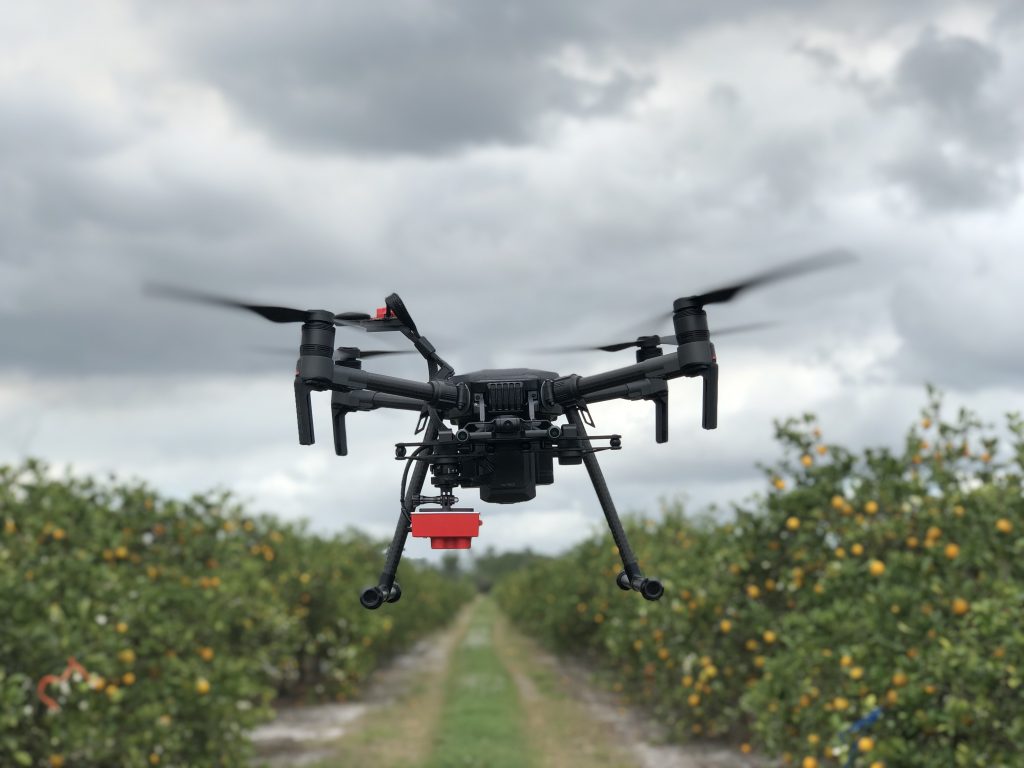
IMMOKALEE, Fla. – The implementation of artificial intelligence (AI) helps citrus growers better forecast their production. So far, they’ve found in a University of Florida preliminary study, its technology predicts yields with 98% accuracy.
That’s a substantial increase from the 75% to 85% accuracy growers get when they count their trees manually, said Yiannis Ampatzidis, a UF/IFAS associate professor of agricultural and biological engineering.
If citrus growers can predict their yield, they will make better business decisions.
“Citrus yield predictions give growers, packinghouses and other distributors critical information before the farmers harvest the fruit,” said Ampatzidis, a faculty member at the Southwest Florida Research and Education Center. “Such predictions help growers know what resources such as workers, storage and transportation will be needed for the harvest.”
In a preliminary study presented last month to the American Society of Agricultural and Biological Engineers, UF/IFAS researchers showed how they used AI technology to generate two citrus yield-prediction models.
Scientists prefer one of those models, which they tested during the 2019-2020 citrus harvest season.
It combines data from unmanned aerial vehicles (UAVs) with manually gathered ground-based data. The technology uses an AI-based model that combines UAV multispectral images with ground-collected color – red, green and blue — images to predict citrus yield.
Scientists prefer the AI-based yield prediction model because it projected the harvest with 98% accuracy at the block level. The size of a “block” area varies; sometimes it can be a 50-acre field; sometimes a 100-acre field.
Researchers compared the AI model with manually collected harvest data.
Currently, growers manually count fruit from randomly selected trees, then they harvest immature fruit from those trees. Then they use simple mathematical models to extrapolate and predict yield for a block, Ampatzidis said.
Some growers also hire consulting companies to predict yield, he said.
The accuracy of these traditional models varies, and it’s often around 75% to 85%.
UF/IFAS researchers used Agroview, a novel cloud-based technology that was named a UF Invention of the Year in 2020, to analyze the multispectral images and to determine tree characteristics, such as height, canopy size, leaf density and health – in addition to the number of fruit.
“We plan to continue this research, collecting more data to further develop and evaluate the model and this yield prediction technique,” Ampatzidis said.









